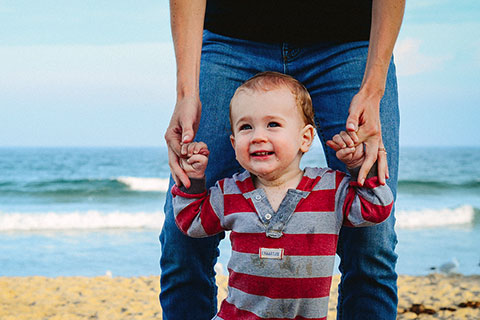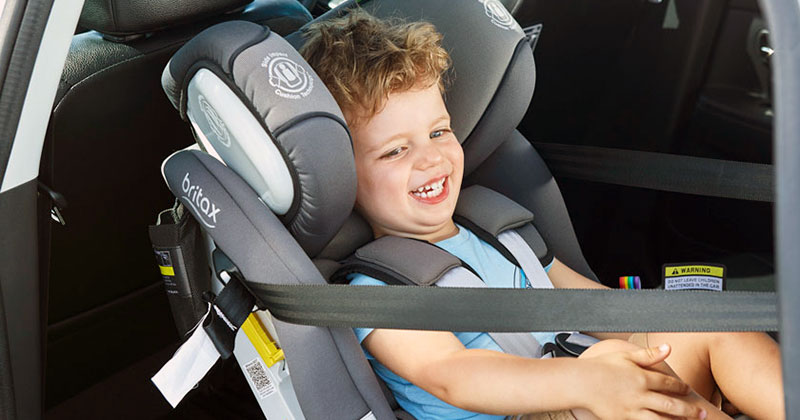Top Tips to Co-Parent a Toddler... communication, love, prep and boundaries
To effectively co-parent a toddler with your ex is challenging. Expect co-parenting in this age bracket to be harder than the years to follow. Our top tips are to communicate well, show love for your child, be prepared for travel and visits, and respect parental boundaries!

Clare McLoghlin
Timtab Contributor
December 16, 2020
Share article:
For many families, parental separation may seem like a difficult hurdle that feels almost impossible to overcome — particularly when it comes to raising a toddler. After all, toddlers require extra care and attention from both parents. Having a healthy relationship between coparents is essential to your child's wellbeing.
Benefits for everyone involved
Bestselling author Anna Giannone points out that learning to work together on child-rearing doesn't just produce significant long-term benefits for your child.
Effective co-parenting can also positively impact your own future relationships and blended family. Being a good co-parent is just a positive, healthy thing to do. Everyone benefits.
Of course, maintaining a successful co-parenting relationship is not always easy, especially when you and your partner didn't end on the best of terms. With that being said, we've listed some tips to guide you on your co-parenting journey with your former partner.
1. Do Your Best to Communicate Openly
Communication is key to a successful co-parenting relationship, moreso if you and your partner don't live under the same roof. Tip 1 is to try to be open with your partner when it comes to matters of your toddler. This applies to anything practical, such as their eating habits or any peculiar behaviors you might have noticed.
To make this easier for you, consider sharing an online document or notebook, where you can input your schedules, discuss screen-time limitations, and other things relevant to your child. Furthermore, openly communicating with your co-parent helps you understand your little one better and gives them the support that they deserve.
Often, a quick text message may be all that's required to keep the other parent informed. The idea is to communicate useful information without getting involved in each other's lives.
2. Show Your Toddler You Love Them

Tip 2 is simply to show love to your toddler. Being expressive with your loving feelings is especially important when that little person is growing up across two households. Moving between homes has the potential to create insecurity if your child ever starts to doubt that they are wanted and needed.
Even small children are quick to pick up on the vibes around them. Whenever you start a new visit with your child, give them a hug and tell them that you're happy to see them. Spend quality time with them right away.
By showing affection and giving time, you let your toddler know that they are your number one priority. He or she should begin to look forward to each exchange and, hopefully, feel instantly secure at the beginning of each visit.
While showing love to your toddler, also support the other parent-child relationship. Don't act like the finish of a visit is the end of the world. Be positive about the other parent and what your child will get to experience with them.
Successful co-parents often report that their kids seem happy at every changeover. While they might be a little sad at saying goodbye to one parent, they look forward to catching up with the one they haven't seen in a while. To them, the world feels like a place where they are always cherished.
3. Prepare Your Own Toddler Gear

Having everything you little one needs at your place is tip 3. All children thrive on consistency and routine. But this can be a challenge for coparents. You really need two complete home setups.
Depending on your custody arrangement, your child may be frequently jumping from one home to another. That can be confusing for a developing toddler.
To make each transition between parents much smoother, it's best to be prepared with your own toddler essentials. Doing so ensures that you're ready for any situation that might arise, lessening the need to make last-minute trips to your ex's house to pick up toddler gear.
For instance, having secure child car seats installed in your vehicle will make it easier (and safer!) to pick up your child from anywhere. The Wise Mum recommends investing in high-quality car seats, like the ones from Britax — which are made with a tether, an impact-absorbing base, and durable steel frames. You don't want any arguments over child safety.
This tip is especially important if you have more than one kid. These double strollers from iCandy have numerous advantages, such as allowing you to transport two children simultaneously. Plus, their slim frames ensure portability and fuss-free manoeuvrability around doorways and busy streets. They're certainly a more economical option compared to buying multiple strollers.
By making sure that you have all that your child needs, co-parenting with your former partner should be significantly less stressful.
4. Respect Each Other’s Boundaries
Operating separately as parents can be a difficult adjustment if you're used to making decisions together — from choosing what to make for your kid's lunch to figuring out how to split expenses. Tip 4 is to establish boundaries that help you define this new relationship, centered on the wellbeing of your child.
For example, it would probably be a bad idea to make comments about your co-parent’s spending. But you do have the right to comment on how they discipline your child, especially if it goes directly against your parenting style.
Having to establish these boundaries won't be simple and may require having some difficult conversations. But it's important to do this to avoid further complications in your co-parenting relationship.
Our very own Andrew Lancaster notes that, to make co-parenting easier, be sure to set a custody arrangement that works best for your child, your schedules, and new roles. With a good parenting plan in place, you both avoid over-stepping and letting personal issues get in the way of your family.